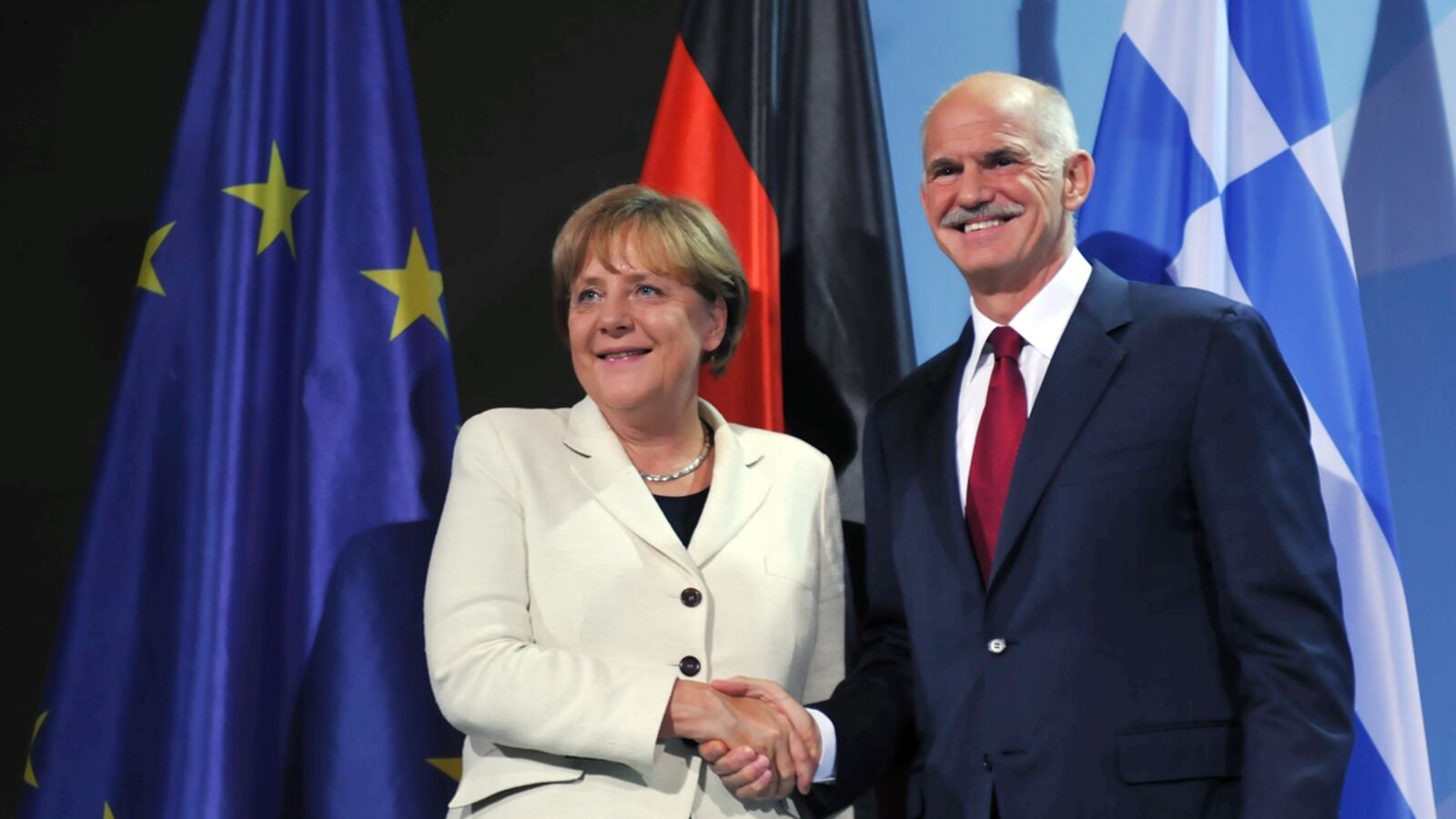Europe is on the brink of disaster—again. The possibility of a Greek default sent the markets roiling on Tuesday. And despite more than $2 trillion doled out to troubled nations such as Greece and Portugal, Europe’s leaders are once again meeting behind closed doors, trying to find a way to stanch the bleeding.
It won’t work, and the window of opportunity is closing fast. At their core, Europe’s problems are political, not economic. And until the continent’s richer nations find the political will to help their poorer counterparts, the situation will remain dire.
If this was just an economic problem, the solution would simple. In the short-term, Europe needs to shore up investor confidence, and the European Central Bank could do that by announcing that its top priority is preserving the euro, not price stability. This would allow the ECB to increase the money supply and ease the strain on struggling economies such as Greece and Portugal. In the meantime, the wealthier nations could put together a once-off restructuring of, say, Greek debt, and a recapitalization of the country’s national banks.
These two steps would dilute or even wipe out shareholder equity in many banks, and impose heavy losses on creditors. Those losses are unfortunate, but they are essential to recovery. The reality is that all lenders bore some responsibility for creating the economic bubble and all must pay their fair share to resolve the crisis.
The problem: Figuring out the politics. Richer member states such as Germany and the Netherlands don’t want to pay for the profligacy of Greece and Portugal. Poorer member states—like Greece and Portugal—say that they are suffering from the economically harmful austerity measures that richer states are demanding.

There is plenty of blame to go around. Unlike other European governments, which were dragged down by the need to rescue their national banks, the Greek government was an enthusiastic participant in the credit bubble. Much of the Greek debt was borrowed from French and German banks, eager to stuff their balance sheets with AAA-rated sovereign debt. Lax regulation meant they were able to treat these assets as riskless, while earning a margin over the more solid debt of countries like Germany.
Yet politics is not a morality play. Now that the bubble has burst, someone has to pay the bills. So far the brunt of that burden has been put on the citizens of debtor nations who have been forced to pay for the excesses of bankers, regulators and politicians. But the process has been pushed as far as it can go. Greece is now in a position where it’s better off defaulting than paying. And no matter what, the country’s creditors will have to take substantial losses.
Well-aware of the disastrous consequences of doing nothing, Europe’s leaders have deliberately tried to obscure the political costs of economic rescue. This is the traditional method of European integration—boring citizens into submission and taking the real decisions out of the public view.
It won’t work anymore. Citizens still do not understand the European Union, but they increasingly view it as a threat. Germany’s Constitutional Court, which has been vocal about the problems of integration without democracy, has made it clear that it will veto any open-ended commitments to fund other European states.
European officials are now trying to create a complex structure that would simultaneously satisfy the court’s strictures and allow stronger member states to support weaker ones. Even if this is technically possible, it would have little popular support, and thus will not inspire the type of market confidence needed to resolve the crisis.
Europe’s leaders should instead take the court at its word. Doing so means pushing for radical political change, namely, radically increasing democratic control, and making the continent as politically integrated as it is economically. Imagine for a moment that there is an elected European President, who controls a beefed up European Commission with the power to initiate legislation; imagine there is an invigorated European Parliament with real authority over a larger budget, and hence relevant to European citizens; imagine a new European Senate, with veto power, that represents the interests of member states. Together, these institutions could shape the future of the continent.
Creating this union wouldn’t be easy. Europe remains politically divided—both in terms of its leaders and its citizens. Yet the old disguises no longer work. And a truly united Europe may be the only way to end this seemingly interminable crisis.






